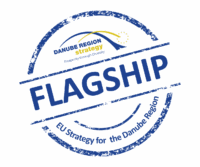Process, multilateral call; ongoing
EUSDR Priority Area(s): PA 7 Knowledge Society
The joint funding instrument MULTILATERAL SCIENTIFIC AND TECHNOLOGICAL COOPERATION IN THE DANUBE REGION was created based on existing bilateral cooperation programmes. Using already tested application and evaluation schemes lowers the bureaucratic burden for both applicants and implementing agencies.
Objectives: The overall aim of this call is to support project cooperation in the Danube Region among the participating EUSDR countries.
- To contribute to scientific advancement in the abovementioned countries by funding researchers’ mobility in the frame of joint research projects;
- To contribute to research capacity development in the Region;
- To support the advancement of cross-border research cooperation;
- To provide an opportunity for young/female researchers in the abovementioned countries to cooperate in an international setting and to develop their scientific careers;
- To facilitate joint participation in European research projects;
- To promote the involvement of the Danube countries in the European Research Area;
Need and (expected) impact: The strengthening of collaborations in the Danube Region should lead to the increased submission of joint cross-border projects in different national and EU funding schemes and raise the scientific excellence in the Danube Region.
Macro-regional dimension: The Multilateral Call for the Danube Region was specifically created to foster science cooperation between the countries of the Danube Region, focusing on creating new partnerships.
Stakeholders involved: Ministries for Education, Science and Research and National Funding Agencies for the policy as well as implementation level; researchers from universities and research organisations as beneficiaries.
Budget and Funding: For the funding of the multilateral projects, the budget initially available for bilateral funding has been repurposed. Some countries have made available extra budget for the calls.
Further information: Published on the different websites of the funding agencies once opened. For example, in Austria: Scientific & Technological Cooperation (S&T Cooperation) | OeAD, Austria’s Agency for Education and Internationalisation; https://oead.at/en/cooperations/international-he-cooperations/scientific-technological-cooperation-st-cooperation or in Slovakia: Grant Schemes | Multilateral Calls |The Slovak Research and Development Agency; https://www.apvv.sk/grantove-schemy/multilateralne-vyzvy/archiv/dunajska-strategia-2016.html
Contact:
- AT: Mr Mag. Dr. RL Christian Gollubits, Federal Ministry of Education, Science and Research,
- SK: Mr Marcel Sládok, Ministry of Education, Science, Research and Sport of the Slovak Republic,
- CZ: Mr Mgr. Luděk Kos, Ministry of Education Youth and Sports,
- RS: Ms Snežana Omić, Ministry of Education, Science and Technological Development,
- FR: Mr François-Xavier Mortreuil (Ph.D.), Embassy of France in Slovakia,
- MN: Ms Ivana Lagator, Ministry of Education, Science and Innovation of Montenegro,
- BG: Mr Yuri Kalvachev, Bulgarian Science Fund,



